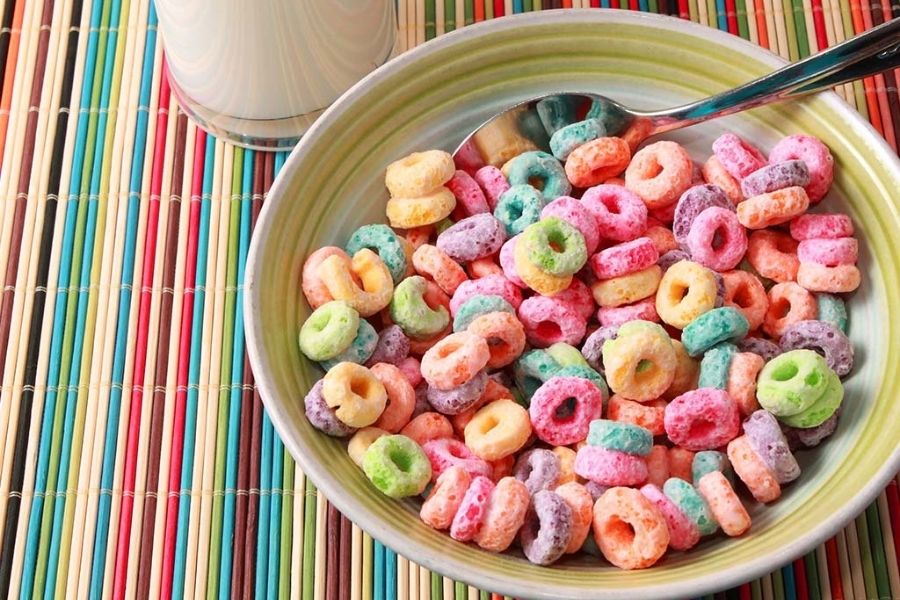There is no secret that the number of calories people consumes and drink directly impacts their weight. Consuming the same number of calories that the body burns over time, and weight remains unchanged if we consume more than the body’s weight increases. To manage weight gain, we need to stay alert about calorie intake.
Low-fat diets are considered the key to a healthy weight and good health. Over the last 30 years in the U.S., the percentage of calories obtained from fat in the diets has decreased, and obesity rates have not reduced. Clinical trials found that following a low-fat diet does not cause weight loss than following a moderate or high-fat diet.
Ways To Manage Weight Gain
1. Dietary Patterns

People generally don’t consume nutrients or foods properly. They eat meals falling into an overall eating pattern, and researchers have begun exploring whether a particular diet/meal patterns help manage weight gain.
Dietary patterns-diets include whole grains, vegetables, and fruits that seem to manage weight gain. Western dietary patterns with more red meat or processed meat, sugary drinks, sweets, refined carbohydrates have been linked to obesity. It is linked to the increased risk of heart disease, diabetes, and other chronic conditions.
2. Portion Size

Portion sizes increased drastically over the past 30 years, as fast food consumption, consuming a greater percentage of calories from fast food than homemade food. These trends are also thought to be a significant contributor to obesity.
Short-term studies indicate that when people are served larger portions, they tend to eat more. In a study, they tested moviegoers, giving them few containers of stale popcorn in either large or medium containers. People concluded that they did not like the taste of the popcorn. Those who received large containers ate about 30% more popcorn than those who received medium-sized containers.
A different study shows that people who were given larger beverages tended to drink more but did not decrease their subsequent food consumption. Another study also provided evidence that when provided with larger portion sizes, people tended to eat more.
3. Follow The Mediterranean Diet

Following the Mediterranean diet help protect against chronic disease appears to be promising for weight control. The traditional Mediterranean diet is higher in fat (about 40% calories) than the typical American diet (34% calories), but most of the fat comes from olive oil. The diet here is rich in fruits, vegetables, beans, nuts, and fish.
A 2008 review found that people who followed a Mediterranean-style diet had comparatively lower rates of obesity or more weight loss in most studies.
4. Skipping Breakfast Is Unhealthy

A little evidence showed that skipping breakfast increases weight gain and obesity risk, though the evidence is stronger in children, especially teens, than adults. The frequency of meals and snacking has increased over the last 30 years in the U.S.
On average, children get 27 % of daily calories from snacks, mainly from desserts and sugary drinks, and increasingly from salty snacks and candy. But there have been conflicting results on the relationship between meal frequency, snacking, and weight control, and more research are needed.
5. Avoid Fast Food To Manage Weight Gain

Fast food, which is in large portions, low prices, high palatability, and high sugar content, and there’s evidence in teens and adults that frequent fast-food consumption contributes to weight gain.
A study followed 3,000 young adults for 13 years. People who had more fast-food-intake levels at the start of the study weighed an average of about 13 pounds more than the people who had lower fast-food-intake levels. They also had larger waist circumferences and greater increases in triglycerides level.
Food Choices Help Manage Weight Gain

There is increasing evidence that food habits and diet patterns help prevent heart disease, diabetes, and other chronic conditions. They may help to manage weight gain:
- Try to select minimally processed, whole foods-whole grains, nuts, healthful protein sources (fish, poultry, beans), and plant oils.
- We must limit sugared beverages, refined grains, potatoes, red meats, and other highly processed foods like fast food.
- Since their surroundings usually shape people’s food choices, governments must promote policy, making healthy foods more accessible and decreasing the availability and marketing of fast foods/unhealthful foods.
Do You Know?
- People following moderate or high-fat diets lose just as much weight as the ones following low-fat diets. When it comes to preventing disease, low-fat diets don’t appear to contribute any unique benefits. The problem is that with low-fat diets they are often high in carbohydrate, like rapidly digested sources, such as white rice, white bread may increase the risk of weight gain, diabetes, and heart disease.
- Protein-rich diets seem to have some advantages for weight loss, though more so in short-term trials, but in the case of longer-term studies, high-protein diets seem to perform equally well as other types of diets. High-protein diets generally tend to be low in carbohydrates and high in fat. So it is difficult to keep apart the benefits of eating lots of protein from those of eating more fat or less carbohydrate.
- Lower carbohydrate, higher protein diets have shown to contribute some weight loss advantages in the short term. Yet, carbohydrate quality is much more critical than maintaining carbohydrate quantity to manage weight gain and chronic disease.
- Do you know that refined grains and white rice, white bread, white pasta, processed breakfast cereals are rich in rapidly digested carbohydrates? They have a high glycaemic index and glycaemic load. Such foods cause rapid increases in blood sugar and insulin that can cause hunger to spike, leading to overeating and increase the risk of weight gain, diabetes, and heart disease.







